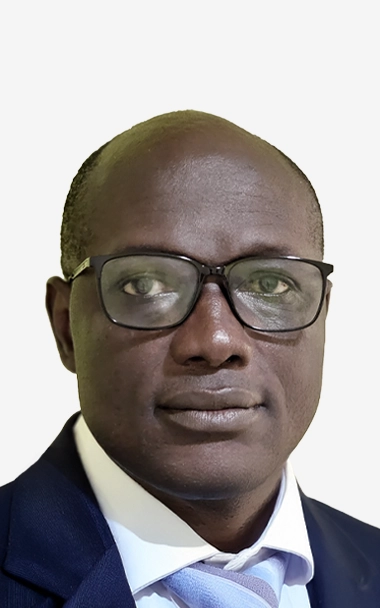First submitter from their country
We talked to Dr. Jacques Aimé Bazeboso Bangudi, presenting author of Partial splenic embolization in Congolese sickle cell disease patients with hypersplenism, and first abstract submitter from the DR Congo to find out about his work and his experience presenting at the CIRSE Annual Congress.
You submitted your abstract “Partial splenic embolization in Congolese sickle cell disease patients with hypersplenism” for CIRSE 2024. As a first-time submitter from the DR Congo, why did you choose the CIRSE Annual Congress to present your work?
Bazeboso Bangudi: I have been a member of CIRSE for several years with the help of Prof. José Ignacio Bilbao, who is the mentor for interventional radiology in the DR Congo, and I benefit from many of the teachings available on the CIRSE website. As CIRSE has a global reach, our article published in April 2024 in CVIR has received great feedback. For this reason, I submitted the abstract to CIRSE 2024.
You presented your work as an oral presentation at the scientific paper session. How was it to get direct feedback on your work from an audience that stems from around the world?
Bazeboso Bangudi: We greatly benefited from CIRSE’s global reach. Thanks to our presentation showing that we have started such a specialized discipline with simple means in the DR Congo, this opened up opportunities to advance IR in the DR Congo, both in terms of training and equipment acquisition. Secondly, we were able to provide information on the reality of IR in the DR Congo. We’re just starting out, and we’re trying to help the first patients in need in certain emergency situations, in particular, post-partum haemorrhage. This international feedback has put to rest any apprehension anyone had of recognizing IR as a discipline in it’s own right in the Congo.
Do you feel that presenting at CIRSE 2024 has had an impact on your work and how you want to share it?
Bazeboso Bangudi: Yes, presenting at the CIRSE Annual Congress gave me an even greater understanding of the IR world. As we are taking our first steps at a time when IR is developing rapidly, we are following in the footsteps of the departments and people who dedicated their lives to the development of this discipline. It is with great joy that are setting up an IR team in the DR Congo, a country with a large surface area and very few radiologists already! With the help of learned societies and other friends and partners, we’ll succeed, because the need is still enormous.
What would you say was the single most important thing you gained from this experience?
Bazeboso Bangudi: It’s hard to limit the benefit to a single fact or word, because within CIRSE and IR, there are several very rich sub-specializations. The big dilemma for me is striking a balance between those sub-specializations and the greatest needs in patient care. The greatest benefit of this experience comes down to the joy of participating and having exchanges with people from different backgrounds with the same goal of developing IR worldwide.
Will you continue your research on hypersplenism caused by sickle cell disease?
Bazeboso Bangudi: As sickle cell disease is very prevalent in our community, many families experience the painful crises caused by the disease. Hypersplenism adds to this burden for families. Splenectomy is performed in many hospitals, but the post-operative after-effects of splenectomy require therapeutic means, especially against infection. This is often lacking, aggravating infection-related mortality. We continue to perform partial splenic embolization, which is inexpensive and provides a long-term solution.
Are you planning to submit another abstract for CIRSE 2025?
Bazeboso Bangudi: Yes, I want to continue to progress in this discipline by sharing my experience with others and also benefit from the experience of others to progress and avoid isolation. It’s in this context that we’ll be continuing our collaboration with Prof. Vincent Vidal and the FairEmbo team to develop IR in the DR Congo.

